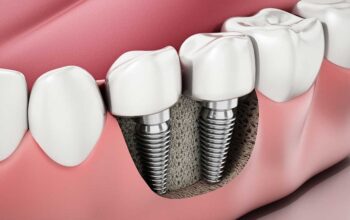How will you feel if you get an electric shock when simply talking or brushing your teeth? That’s what individuals with trigeminal neuralgia (TN) experience in their daily lives, which will be sharp, shooting facial pain that can be so severe, it affects everyday life. But have you ever thought of what is actually causing these painful episodes? While physical causes such as nerve compression are well-documented, several people wonder if stress or anxiety can also play a role in triggering or worsening trigeminal neuralgia. Further, let’s have a close look at this blog to know whether mental health influences this prolonged pain condition or not, and what you can do about it.
What is trigeminal neuralgia?
Trigeminal nerves will be affected with trigeminal neuralgia, this nerve is responsible for sending signals from your face to the brain. This nerve has three branches that manage feeling in your forehead, cheeks, and jaw. Whenever this nerve gets disturbed by a blood vessel pressing against it, or in rare cases, a tumor or multiple sclerosis, it can send pain signals to the brain without a clear cause. This will result in abrupt, acute facial pain often triggered by actions such as chewing, smiling, talking, or even a light breeze, when you should consider getting trigeminal neuralgia treatment in Coimbatore.
What are the common symptoms of trigeminal neuralgia?
- Pain- like an electric shock.
- Burning or stabbing sensation.
- Pain lasts for seconds to minutes.
- Day-to-day activities, like even washing your face, will cause pain.
- Increasing frequency or intensity over time.
What triggers trigeminal neuralgia flare-ups?
The root cause often lies in nerve compression, triggers vary greatly, and include:
- Brushing your teeth.
- Applying makeup.
- Speaking or chewing.
- Cold wind or air conditioning.
- Stress or emotional disturbances.
Further, let’s zoom in on that final but significant trigger, ‘stress and anxiety’, and explore how emotional health intersects with nerve pain.
Can stress cause trigeminal neuralgia?
Of course, stress and anxiety will result in trigeminal neuralgia flare-ups, though they will not directly cause the condition.
. Stress and the nervous system connection:
The nervous system has two modes, like:
- Sympathetic (fight or flight).
- Parasympathetic (rest and digest).
When you are stressed or anxious, fight or flight mode will get activated in your body, releasing hormones such as cortisol and adrenaline. This heightened state of alertness will increase nerve sensitivity, making pain more likely or more intense.
Individuals with trigeminal neuralgia, a hypersensitive nervous system that can exacerbate anxiety and facial nerve pain or lower the threshold for what triggers it.
. Muscle tension and nerve compression:
Often, stress will trigger people to clench their jaw or tighten facial and neck muscles without even realizing it. This added tension can:
- Indirectly irritates the trigeminal nerve.
- Compress blood vessels and increase inflammation.
- Worsens the already existing stress and nerve pain.
Chronic jaw tension will worsen trigeminal neuralgia.
. Mental health and pain perception:
Pain is something apart from physical sensation, your brain interprets pain signals, and your mental state will amplify or mute them. Individuals with chronic stress or with an anxiety disorder may:
- Perceive pain more intensely.
- Take a longer time to recover from pain episodes.
- Becomes hypersensitive to minor triggers.
This method is also known as central sensitization, where the brain gets stuck in a loop of overreacting to pain signals.
. Sleep disruption and reduced pain threshold:
Stress and anxiety will affect your sleep, which worsens your pain sensitivity. Without adequate rest, the nervous system doesn’t get a chance to reset, and pain from trigeminal neuralgia may feel more severe or last longer.
What are the ways to manage trigeminal neuralgia when stressed?
You need to understand that, always you cannot avoid trigeminal neuralgia simply by managing the stress and anxiety the intensity or frequency of flare-ups will get reduced. Further, let’s see some effective strategies to manage TN with stress:
. Mindfulness and meditation:
Practices such as deep breathing, meditation, or yoga will assist in calming the nervous system and reducing the brain’s pain perception.
- Try deep breathing for at least 5 to 10 minutes every day.
- Use guided meditation apps to relax.
- Prioritize sleep:
When sleeping properly, your pain will be controlled. Develop a soothing bedtime routine and stay away from caffeine or screen time before sleep.
. Talk therapy:
Cognitive behavioral therapy (CBT) will greatly assist people in managing chronic pain and anxiety. It assists in reframing thoughts that worsen pain perception and teaches effective coping mechanisms.
. Medication support:
In case anxiety remains the major concern, healthcare professionals will prescribe medications to help with nerve pain. Further, common trigeminal neuralgia medications can be more effective when combined with stress management.
. Physical relaxation methods:
- Progressive muscle relaxation.
- Neck and jaw massages.
- Safe exercises for the shoulder, neck, and face.
These assist in relieving physical tension that might compress or irritate the trigeminal neuralgia.
. Avoid overthinking the pain:
It’s quite common to be scared about the next flare-up, constantly worrying about it can develop a cycle of anxiety and pain. Distraction, hobbies, and social engagement will assist in shifting focus and reducing emotional distress.
Simply, to effectively deal with your trigeminal neuralgia, reach out to the pain management hospital in Coimbatore to safeguard your condition.
BotThat’s what individuals with trigeminal neuralgia (TN) experience in their daily lives, which will be sharp, shooting facial pain that can be so severe, it affects everyday life. But have you ever thoughttom line:
In conclusion, we can say that stress and anxiety are not the direct cause of trigeminal neuralgia, but they are powerful triggers that worsen pain or make it harder to manage. Simply, emotional distress and nerve pain are often part of a feedback loop, one fuels the other. By taking care of your mental health, engaging in stress reduction activities, and working with both pain and psychological specialists, you can manage trigeminal neuralgia and improve your overall quality of life.




